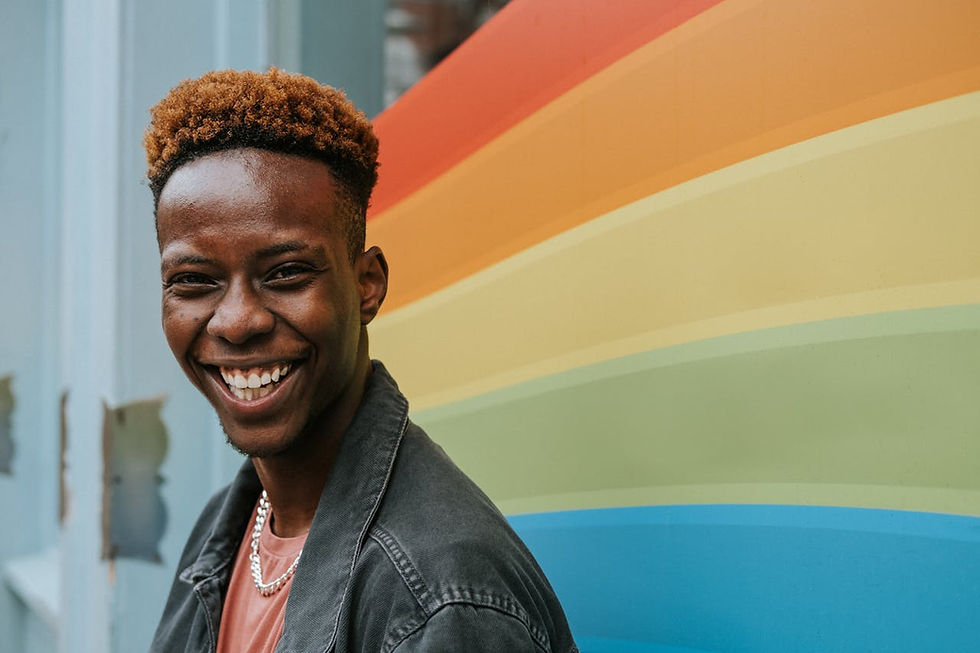There’s not much scarier than living amid a society that seems hell-bent on erasure and hostility. All of us in the LGBTQ+ community have experienced that sort of hostility at some point in our lives. Still, for those who are trans or gender nonconforming, these challenges are especially pronounced. A step further, genderfluid individuals often struggle for understanding and acknowledgment not only by society writ large but even by those who might otherwise be accepting.
In today’s article, we’ll talk about how to protect your mental as a genderfluid person living in a hostile society.
Expect Pushback
Humans are naturally inclined toward labeling things and categorizing them; genderfluid individuals challenge this natural inclination, which can become a source of friction. Acknowledging and setting realistic expectations for the types of pushback to your identity you may encounter can be a key way to preserve your mental health.
Understand that people who reject or don’t understand your mental health are not reacting to you personally; they are caught up in their own social programming. Many of the negative responses you may encounter are a sign that people are having difficulty confronting evidence that contradicts their own beliefs and ideas about the world.
Self-Affirmation

While affirmation by others is incredibly powerful, your identity isn’t subject to the opinions of others. You can start by incorporating a self-affirmation practice into your daily routines. The first step in this process is understanding what aspects of your genderfluidity are most important to you. How important are your pronouns? Do your preferences shift when it comes to appearance or gender presentation?
Once you have an understanding of how you want to incorporate your genderfluidity into your daily life, you can start self-affirming in healthy ways:
Indulge your fluidity
Don’t worry about what others might think; worry about what makes you comfortable. If that means a crisp suit one day and a skirt with a cute blazer the next, that’s totally okay. With familiarity and exposure, people will learn to adjust.
Accessorize freely
For those in situations where frequent changes to gender presentation feel uncomfortable or even impossible, consider focusing on expressing your genderfluidity through accessories: some bangles or jewelry, painted nails, or an accent article of clothing. Even quietly affirming your identity is a way of expressing self-care and acknowledging that your identity is something to be celebrated and enjoyed.
Profess your pronouns
Consider approaching your pronouns in a public way. Someone asks you, “How are you feeling today?” Respond with “I’m feeling a little he/him today” or something similar. People may not always respect them, but keeping your pronouns light and public will help people understand your genderfluidity.
Seek Safe Spaces
We all need breaks, so take breaks. Some places are more accepting of genderfluidity than others. It’s important to feed your soul by finding and indulging in those spaces, whether they be online or in real space.
Communication
Practice talking about your genderfluidity with others. Consider casually incorporating it into conversations about your life without making it a focal point. Being prepared for questions and conversation can help alleviate anxiety around being ‘out’ in the world.
Cognitive Behavioral Therapy
Constant exposure to negative thoughts and feelings takes a toll on even the strongest individuals. CBT therapy helps provide tools to manage those thoughts by
challenging them. This can be done either solo or in a group format. Think of this as a set of tools you can use to maintain your center when you start feeling lost.
Counseling
Genderfluidity is complex and often misunderstood — and social transition can be difficult even with support. It’s natural to struggle to protect your mental health with the news and social media providing a constant drumbeat of negativity. We specialize in supporting those in the LGBTQ+ community as they navigate to find their way in the world. Reach out today to find out how LGBTQIA+ therapy can help you.

Comments